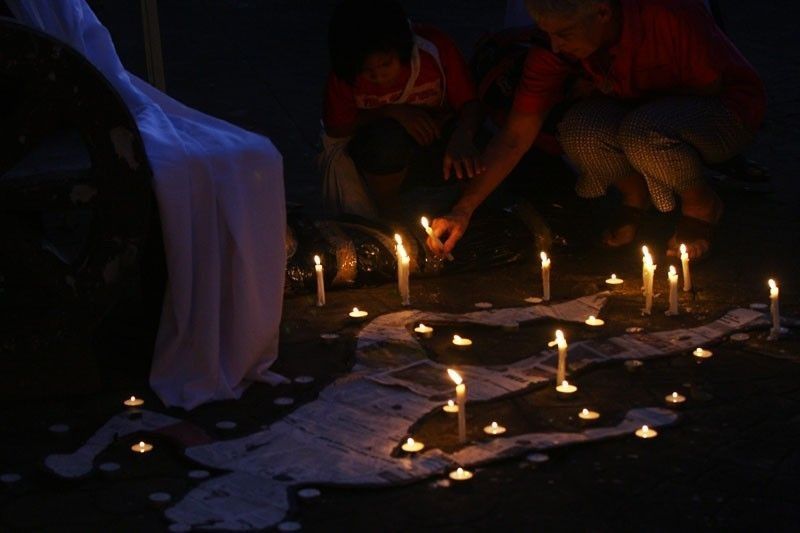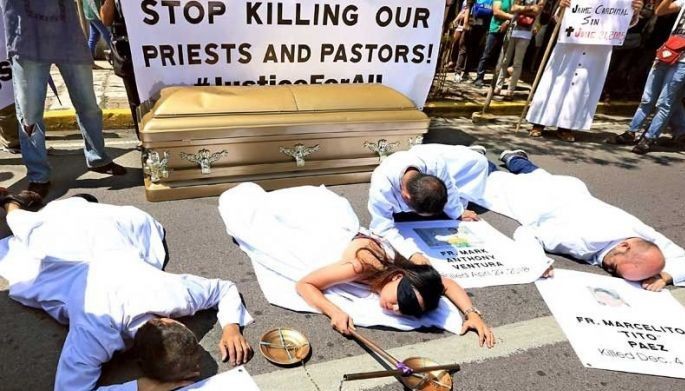Police brush off ICC prosecutor's report, says evidence of abuses needed

MANILA, Philippines — The spokesperson of the national police on Wednesday played down a report by the International Criminal Court's Office of the Prosecutor that there is basis to believe that crimes of humanity were committed amid the administration's campaign against illegal narcotics, saying it needs to see evidence of that.
On Tuesday, ICC Prosecutor Fatou Bensouda's office said that based on gathered information, there is "reasonable basis to believe that the crimes against humanity of murder and the infliction of serious physical injury and mental harm as other inhumane Acts were committed on the territory of the Philippines."
Asked about the Philippine National Police's reaction to the claims in an interview aired over "Unang Hirit", Police Brig. Gen. Ildebrandi Usana, PNP spokesperson, said: "The Palace has already given a reaction as regards to the ICC. We leave it to Malacañang insofar as the official position of the government."
"Evidence should be part of the discussion on human rights. We'll need to see pieces of evidence that say that there were violations of human rights," he also said, reiterating that the ICC report was not "recognized."
Bensouda's office is holding a preliminary examination to determine whether the ICC has jusridiction to hold an investigation into alleged extrajudicial kilings and other rights violations in the government's "war on drugs."
The Palace has already said the Philippines does not recognize the ICC's jurisdiction and will not cooperate with any probe.
RELATED: Human rights 'never got in the way' of war on drugs — PNP chief
But this is not the first or even the second time the Philippine government has been assailed by the international rights community, with the "war on drugs" drawing criticism from the United Nations Human Rights Council, Amnesty International, and Human Rights Watch.
At a live-streamed flag-raising ceremony earlier in December attended by Presidential Undersecretary Severo Catura, who serves as executive director of the Presidential Human Rights Committee, police officials were told that allegations of human rights abuses were only a narrative being peddled by the political opposition.
This, despite documented cases, such as the murder of 17-year-old Kian Loyd delos Santos, who begged on his knees to be spared when he was shot by cops in August 2017. Police officers involved in the killing have been convicted, proof, the government said, that abuses by security personnel are not tolerated.
President Rodrigo Duterte and many of his officials have favored killing criminals and "drug personalities" — nearly 6,000 of whom have been killed, according to the government's "Real Numbers" campaign, with all of them violently resisting arrest.
"All addicts have guns. If there's even a hint of wrongdoing, any overt act, even if you don't see a gun, just go ahead and shoot him," Duterte said in Filipino at an event where seized drugs were destroyed
READ: 'I don't care about human rights,' Duterte says, urging cops to 'shoot first'
Police figures acknowledge around 8,000 "drug personalities" slain in official operations where police claim that only suspects who fought back were killed, though rights groups say the number may be as high as 30,000 deaths since Duterte's "war" began in 2016.
An initial report from a Department of Justice-led review of deaths in drug operations is expected out this month.
“We refrain from making any comments if need be at this point until we obtain the ICC findings in detail," Usana also said earlier. — with a report from The STAR
- Latest
- Trending





























